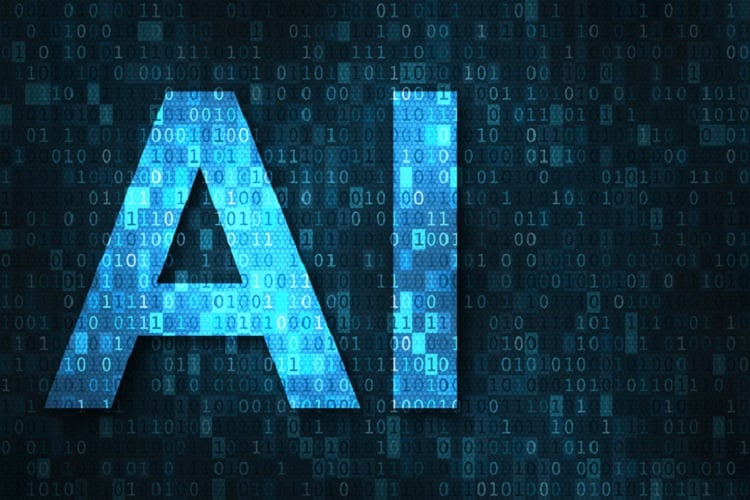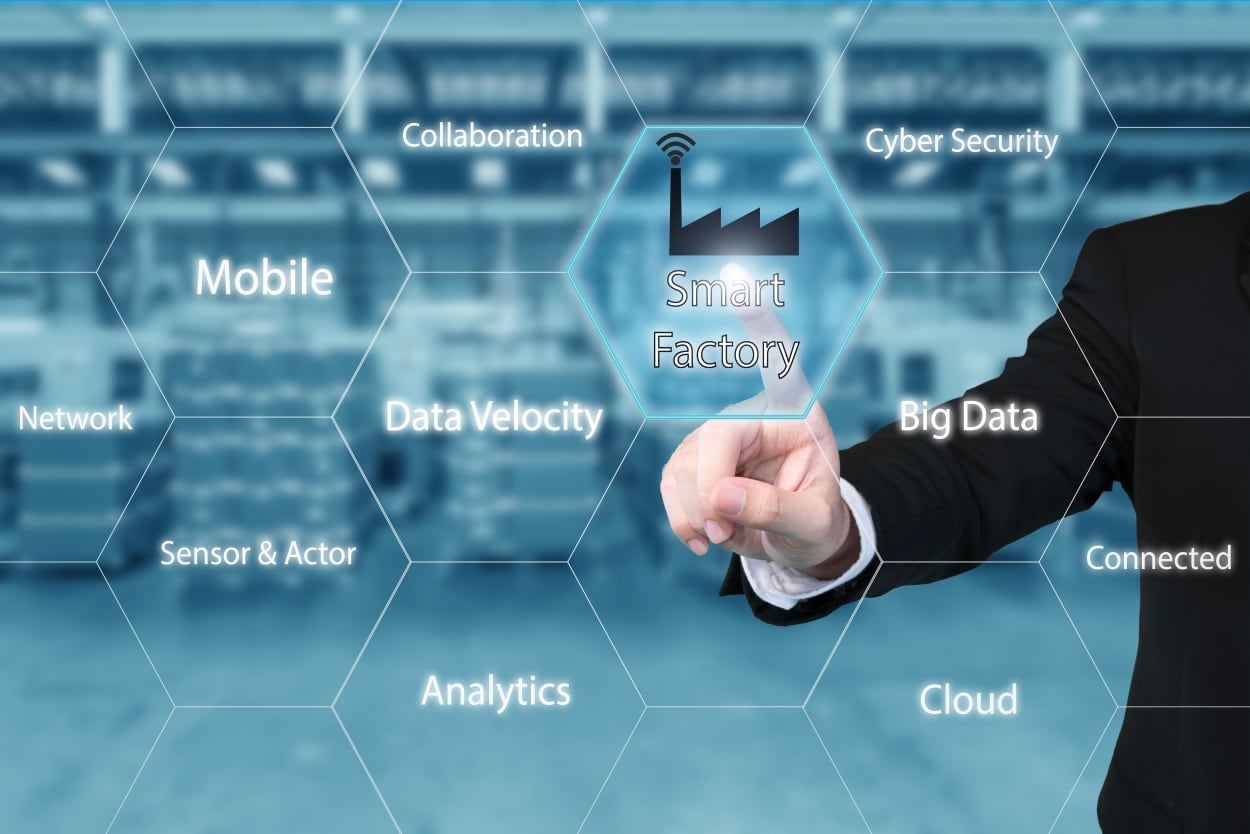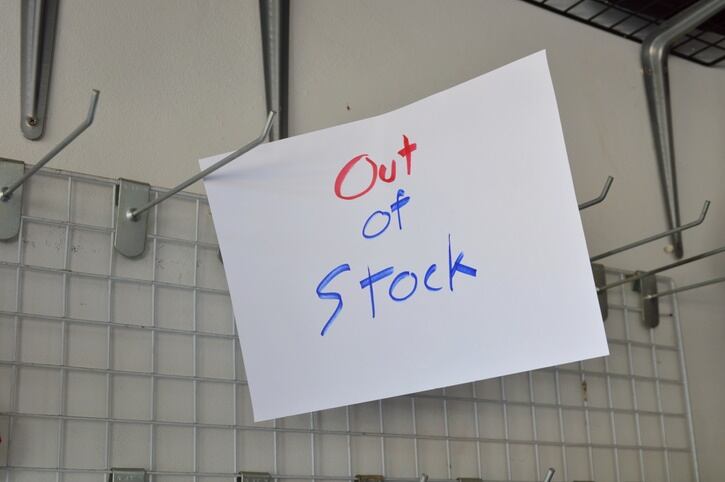Food companies are increasingly aware that processing big data, and sharing selected sets with competitors, can help boost their bottom line, says FurturMaster sales manager, Martin Sewell.
Supply chains are evolving to incorporate advanced, next-generation technologies, according to FutureMaster. Looking to 2019, the provider of supply chain planning software predicts greater uptake of artificial intelligence (AI), machine learning, cloud IT solutions, and wireless tracking systems.
For Sewell, who manages the firm’s sales in the UK and northern Europe, increased awareness of big data – and its potential to help retailers cut costs and improve efficiencies – is driving change.
With better tools for data manipulation and analysis, and a greater willingness from businesses to share information in their supply chain, data-driven systems can help optimise strategy and maximize return, he said.
With less than three months until the UK withdraws from the European Union, FoodNavigator asked Sewell how these supply chain trends will affect food manufacturers in these regions, and how increased collaboration can benefit food players across the sector.
(Image: Getty/undefined undefined)

Food companies are increasingly aware that processing big data, and sharing selected sets with competitors, can help boost their bottom line, says FurturMaster sales manager, Martin Sewell.
Supply chains are evolving to incorporate advanced, next-generation technologies, according to FutureMaster. Looking to 2019, the provider of supply chain planning software predicts greater uptake of artificial intelligence (AI), machine learning, cloud IT solutions, and wireless tracking systems.
For FuturMaster’s Martin Sewell, who manages the firm’s sales in the UK and northern Europe, an increased awareness of big data – and its potential to help retailers cut costs and improve efficiencies – is driving change.
With better tools for data manipulation and analysis, and a greater willingness from businesses to share information in their supply chain, data-driven systems can help optimise strategy and maximize return, he said.
With less than three months until the UK withdraws from the European Union, FoodNavigator asked Sewell how these supply chain trends will affect food manufacturers in these regions, and how increased collaboration can benefit food players across the sector.
(Image: Getty/undefined undefined)

While artificial intelligence (AI) is not a new concept, an increasing number of businesses are tapping into machine learning to process data, forecast sales trends, and manage inventory in the retail sector.
UK food tech group OAL, for example, has developed an AI-based vision system for date code verification, which is designed to reduce the risk of product recalls. US-based IRI has similarly launched a machine learning-focused system, the On-Shelf-Availability Optimizer, that alerts retailers when certain product sales are unexpectedly low.
Business are realising that that “all of a sudden, [they] do have the data to make some serious inroads into using this type of technology to make better decision than their competitors,” Sewell said.
In the retail sector, supermarket promotions can also complicate firms’ predictions on what, when, and how they might sell products, particularly when competitors’ promotions can influence buying trends. “It is machine learning that brings all of these [elements] together,” said Sewell.
While FuturMaster predicts the early pioneers of AI to include cosmetics, healthcare, pharmaceutical and retail industries, the fresh food market is also set to benefit from these technological advances.
“The fresh food market is much more sensitive to external factors than a lot of other markets. If we look at weather, for example…there are a lot of supply chains that are heavily reliant on products sensitive to the weather,” he told us.
Machine learning provides an opportunity to process and analyse data, weather trends, and these relationships between supply chain stakeholders to ultimately provide “sensible answers” to food manufacturers, he continued.
(Image: Getty/NicoElNino)

The UK is set to withdraw from the European Union in less than three months. “The big pain around Brexit for the supply chain, as elsewhere, is the uncertainty about what the final deal – or not – is going to look like,” said FuturMaster sales director Nick Giuffrida in a statement.
Food manufacturers are investigating how resilient their supply chains will be, in different Brexit scenarios, to “efficiently manage the uncertainty that is coming,” Sewell told this publication.
(Image: Getty/rommma)
Some may consider moving certain manufacturing or distribution operations to central Europe, he continued, adding that supply chain uncertainty and risk management studies can help businesses “get a step up” against their location competition.
“If you embrace Brexit as a business, and make sensible, data-driven decisions, and do that better than your competitors, then you’re in a place where you may be extending your market share.”

As sensor and wireless tracking technology advances, FuturMaster predicts the internet of things (IoT) will have an increasing impact on the supply chain.
When connected with IoT, computers and sensors enable firms to immediately respond to a variety of signals, such as when inventory is low.
“We are starting to take data from [small computers and sensors] in almost real time, to make better decisions and to respond faster in the supply chain,” Sewell explained.
“From a production point of view, integrating [manufacturing] machines with sensors [can allow] us to know ahead of time when [processing tools] need maintenance or repair…We can adjust our plans in line with the fact that we know one particular machine is going to need unexpected maintenance sometime in the near future.”
According to FuturMaster, IoT technology has been primarily adopted in apparel and pharmaceutical industries, with take-up predicted to become more widespread this coming year.
(Image: Getty/NicoElNino)

While in principle, stakeholders agree that sharing reliable, accurate data can benefit all, in practice, take-up has been slow. Will 2019 be the year for change?
According to FuturMaster, collaboration between food manufacturers is strong on a face-to-face level, and is growing in a digital sense.
“From a face-to-face perspective, it already happens. People are already sharing data, but sharing over the phone rather than digitally. We are getting so much better at that now, so I think that [will come],” Sewell said.
“We see there is more willingness from businesses to share data with their competitors. There would be a mutual benefit in competitors sharing certain information…it might improve overall margin, it might help both [parties] increase market share within their [sector].”
(Image: Getty/pixelfit)





